
Journal of Zoo and Aquarium Research
Scope & Guideline
Unveiling the science behind animal welfare and habitat preservation.
Introduction
Aims and Scopes
- Animal Behavior and Welfare:
The journal emphasizes the study of animal behavior in captivity, including how different environmental factors and management practices influence the welfare of zoo and aquarium species. - Conservation and Rehabilitation:
Research related to conservation efforts, particularly those involving ex-situ breeding programs and the rehabilitation of species, is a core focus. The journal publishes findings that can inform conservation strategies. - Nutrition and Dietary Management:
The journal addresses nutritional studies that explore dietary needs, feeding practices, and their impact on the health and behavior of zoo animals. - Visitor Engagement and Education:
The impact of zoo and aquarium visitor interactions on animal behavior, as well as educational outcomes, is explored to enhance public engagement and conservation awareness. - Innovative Management Practices:
The journal encourages the development and assessment of innovative management practices, including environmental enrichment, that improve animal welfare and exhibit design.
Trending and Emerging
- Environmental Enrichment and Welfare:
There is a growing emphasis on studies that assess the impact of environmental enrichment on animal behavior and welfare, reflecting a broader recognition of the importance of mental stimulation in captive settings. - Human-Animal Interactions:
Research investigating the effects of human interactions, including ambassador programs and educational outreach, on both animal behavior and public conservation attitudes is gaining traction. - Use of Technology in Animal Management:
The incorporation of technology, such as bioacoustic monitoring and video analysis, in studying animal behavior and welfare is on the rise, allowing for more sophisticated data collection and analysis. - Cross-species Comparisons:
Emerging studies are increasingly exploring behavioral and welfare comparisons across different species, which can inform best practices and enhance understanding of animal needs. - Focus on Stress and Physiology:
Research examining stress indicators, including hormonal responses and behavioral changes, is becoming more prevalent, emphasizing the importance of physiological metrics in assessing animal welfare.
Declining or Waning
- Traditional Taxonomy Studies:
Research focusing solely on taxonomic classifications without considering behavioral or ecological implications has decreased, as the field moves towards integrative approaches that combine taxonomy with conservation and welfare. - Generalized Health Assessments:
Studies that merely report on health metrics without linking them to specific welfare or behavioral outcomes have become less frequent, favoring more nuanced investigations that connect health with animal welfare. - Historical Management Practices:
Investigations centered on historical or outdated management practices are less common as the focus shifts to contemporary welfare standards and evidence-based practices. - Single-species Studies:
There has been a notable decline in studies that focus exclusively on single species in isolation, with a growing trend towards multi-species or community-focused research that examines interactions and ecosystem dynamics.
Similar Journals

Journal of Vertebrate Biology
Unveiling the complexities of vertebrate life.Journal of Vertebrate Biology, a reputable publication established by the Institute of Vertebrate Biology in the Czech Republic, serves as a vital platform for research across the fields of Animal Science and Zoology, Aquatic Science, and Ecology, Evolution, Behavior and Systematics. With its ISSN 2694-7684 and a commendable 2023 Q2 ranking in multiple categories, this open-access journal embraces innovative scientific inquiry and fosters academic discourse. The journal's commitment to disseminating high-quality research is reflected in its Scopus rankings, positioning it within the top quartile in several impactful areas. As it continues to converge its focus until 2024, researchers, professionals, and students alike are encouraged to engage with cutting-edge studies that advance our understanding of vertebrate biology. This publication stands out not only in its scholarly contributions but also in enhancing global awareness of biodiversity and conservation issues.
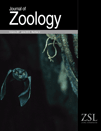
JOURNAL OF ZOOLOGY
Uncovering groundbreaking discoveries in animal science.JOURNAL OF ZOOLOGY, published by Wiley, stands as a premier scholarly journal in the fields of Animal Science and Zoology, renowned for its outstanding contributions to the knowledge of animal biology and ecology. With an impressive impact factor and a strong ranking in the Q1 category for Animal Science and Zoology, as well as Q2 for Ecology, Evolution, Behavior, and Systematics, the journal rigorously engages with both foundational research and groundbreaking discoveries since its inception in 1830. Located in Hoboken, New Jersey, this journal is dedicated to fostering the academic community's understanding of zoological sciences, providing access to important research that shapes wildlife conservation efforts and ecological studies. Although the journal does not currently offer open access options, it continues to attract significant attention, as evidenced by its strong Scopus rankings in related categories. Researchers, professionals, and students will find invaluable resources in the JOURNAL OF ZOOLOGY to advance their understanding of animal life and the ecological challenges it faces today.
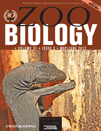
ZOO BIOLOGY
Advancing wildlife research through rigorous scholarship.ZOO BIOLOGY, published by Wiley, serves as an essential academic journal in the fields of animal science and zoology. With a notable ISSN of 0733-3188 and an E-ISSN of 1098-2361, the journal has been a cornerstone of wildlife research and conservation since its inception in 1982. Spanning research contributions up to 2024, ZOO BIOLOGY holds an impressive reputation, ranked in the Q2 category for Animal Science and Zoology and Q3 in miscellaneous Medicine, reflecting its significant influence and scholarly impact. With a Scopus rank of #188 out of 490 in Agricultural and Biological Sciences, the journal maintains a strong position in the 61st percentile, showcasing the high-quality research it publishes. Although it does not offer open access, ZOO BIOLOGY provides valuable insights and advancements in the biological sciences, making it an indispensable resource for researchers, professionals, and students dedicated to advancing zoological science and animal biology.

ZOOLOGICAL SCIENCE
Bridging Theory and Practice in Zoological ResearchZoological Science, published by the Zoological Society of Japan, is a leading journal dedicated to the fields of animal science and zoology. With its ISSN 0289-0003, this respected publication has established itself as a prominent source of scientific research, attaining a commendable Q2 ranking in the 2023 category of Animal Science and Zoology. Spanning over three decades, from 1992 to 2024, the journal offers a valuable platform for scholarly articles that explore various aspects of zoology, including ecology, behavior, and evolutionary biology. Although it operates under a traditional subscription model, its contributions are supported by a robust community of researchers and professionals who value its insights. The journal strives to foster academic discourse and insights that drive understanding and conservation of wildlife, making it an essential resource for students and established experts alike. The publishing headquarters located in Tokyo, Japan, further enhances its international reach and influence in zoological studies.

CANADIAN JOURNAL OF ZOOLOGY
Advancing the Frontiers of Animal Science and EcologyWelcome to the Canadian Journal of Zoology, a leading academic journal in the fields of Animal Science and Zoology as well as Ecology, Evolution, Behavior and Systematics. Published by Canadian Science Publishing since 1965, this esteemed journal serves as a vital platform for researchers, professionals, and students to disseminate and engage with significant findings in zoological and ecological research. With an impact factor placing it in the Q2 category and rankings reflecting its influence (201/490 in Animal Science and Zoology; 372/721 in Ecology), the journal is committed to advancing the understanding of animal biology and environmental interactions. Although currently not an open access publication, it provides comprehensive resources and studies that are crucial for the academic community. Based in Ottawa, Canada, the journal continues to push the boundary of knowledge right up to 2024 and beyond, making it an essential resource for anyone dedicated to the life sciences.
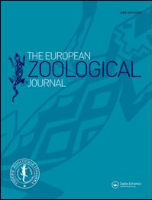
European Zoological Journal
Bridging the Gap Between Research and Ecological SolutionsEuropean Zoological Journal, published by Taylor & Francis Ltd, is an esteemed open-access publication dedicated to advancing the exciting field of zoology. Since its inception in 2017, this journal has progressively established itself as a vital resource for researchers, professionals, and students alike. With its Q2 ranking in Animal Science and Zoology as of 2023, the journal ranks in the 69th percentile among its peers, showcasing its influence and contribution to the discipline. The journal’s broad scope covers a wide range of topics within zoology, aiming to foster an understanding of animal biology and conservation efforts. As an open-access journal, it not only enhances the dissemination of knowledge but also encourages collaborative research across global communities. Situated in the United Kingdom, the European Zoological Journal invites submissions that contribute to the evolving discourse in animal sciences, and endeavors to support the scientific community in addressing pressing ecological challenges.

AUSTRALIAN JOURNAL OF ZOOLOGY
Pioneering Insights into Animal Behavior and SystematicsAustralian Journal of Zoology, published by CSIRO PUBLISHING, serves as a premier platform for research in the fields of animal science and zoology, with a profound commitment to advancing our understanding of wildlife and ecosystems. Featuring an ISSN of 0004-959X and an E-ISSN of 1446-5698, this esteemed journal encompasses a wide range of topics relevant to ecology, evolution, behavior, and systematics. For the year 2023, it holds a commendable Q2 ranking in both Animal Science and Zoology and Ecology, Evolution, Behavior, and Systematics, demonstrating its significant impact within the academic community. With a rich publication history spanning from 1952 to 2024, the journal caters to researchers, professionals, and students by disseminating crucial findings and methodologies that contribute to effective conservation efforts and informed ecological practices. Although not an open access journal, it continues to foster collaboration and discussion among scholars in Australia and beyond. Located in Clayton, Victoria, the journal remains dedicated to its objective of enhancing knowledge in zoological sciences and addressing vital environmental challenges.
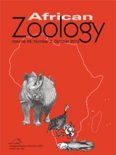
AFRICAN ZOOLOGY
Empowering Scholarship in African ZoologyAFRICAN ZOOLOGY, published by Taylor & Francis Ltd, stands as a significant journal in the realm of Animal Science and Zoology, with a proud history dating back to 1996 and slated to continue until 2024. With an ISSN of 1562-7020 and E-ISSN 2224-073X, this journal provides a reputable platform for researchers and practitioners dedicated to the study of animal biology across the African continent. It has been recognized for its quality scholarship, evidenced by its Q3 categorization in the 2023 Scopus quartile rankings and an impressive rank of #182 out of 490 within its field. As an open-access journal, it facilitates the dissemination of vital research findings and promotes broader accessibility, catering to a diverse audience of professionals, scholars, and students alike. The journal aims to enhance our understanding of wildlife, conservation, and ecosystem dynamics in Africa, fostering collaborations that address critical ecological challenges. For researchers and enthusiasts keen on contributing to and staying informed about advancements in zoological science, AFRICAN ZOOLOGY is an essential resource that enriches the global discourse on biodiversity and conservation efforts.

Journal of Wildlife and Biodiversity
Exploring the depths of biodiversity.Journal of Wildlife and Biodiversity, published by Arak University in Iran, is an Open Access journal that has been contributing to the fields of wildlife science and biodiversity since its inception in 2017. With an E-ISSN of 2588-3526, this journal serves as a vital platform for researchers, professionals, and students alike, dedicated to disseminating significant findings related to animal sciences, ecology, and environmental conservation. Despite its current Q4 ranking in various categories (Animal Science, Ecology, and Nature and Landscape Conservation) according to the 2023 metrics, the journal's commitment to advancing knowledge in wildlife and biodiversity remains unwavering. Although the journal's Scopus coverage has been discontinued since 2024, it continues to cater to a wide audience by promoting innovative research and fostering collaborations in the academic community, ultimately aiming to enhance understanding and conservation strategies for wildlife and their habitats.
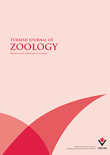
TURKISH JOURNAL OF ZOOLOGY
Fostering Global Collaboration in Animal ScienceThe TURKISH JOURNAL OF ZOOLOGY, published by the esteemed Tubitak Scientific & Technological Research Council Turkey, serves as a pivotal platform for the dissemination of research in the field of zoology and animal science. With an ISSN of 1300-0179 and an E-ISSN of 1303-6114, this journal has been contributing to the scientific community since its inception in 1994 and will continue to do so through 2024. Renowned for its scientific rigor, the journal holds a Q3 ranking in the 2023 category of Animal Science and Zoology, placing it within the prominent ranks of Scopus with a current percentile of 56, and an overall rank of 214 out of 490 in its domain. As an essential resource for researchers, professionals, and students, the journal prioritizes quality research, fostering knowledge exchange and collaboration among scholars worldwide. With its commitment to advancing understanding in zoological sciences, the TURKISH JOURNAL OF ZOOLOGY stands as a significant contribution to the global scientific dialogue.